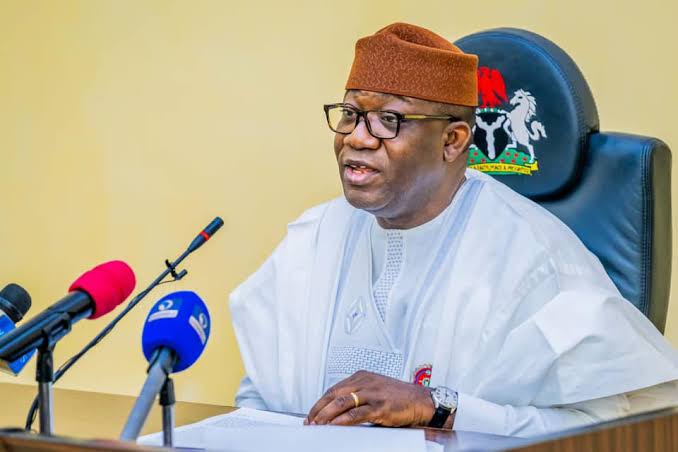* As ministry launches World Bank-backed IDEAS project
By Mathew Dadiya, Abuja
Ekiti State governor and Chairman of the Nigeria Governors’ Forum (NGF), Dr Kayode Fayemi, has challenged stakeholders in the Nigerian education sector to evolve a new approach to rendering education in the country as the ‘white-collar-focused’ system can no longer support national development.
The governor gave the charge in his Keynote Address, on Monday at the official flag-off of the Innovation Development and Effectiveness in Acquisition of Skills (IDEAS) Project in Abuja.
The Federal Ministry of Education organised the workshop in collaboration with the World Bank in its determination to ensure the success of the IDEAS project.
World Bank is supporting the IDEAS Project in each of the participating states (Ekiti, Benue, Edo, Abia, Gombe and Kano) with the sum of $200 million credit facility for implementation.
Dr Fayemi, who was represented by the Ekiti State Commissioner for Education, Science, and Technology, Mrs. Olabimpe Aderiye, addresses them on the topic “Re-engineering the Nigerian mind from white collar to blue collar enterprises”.
He noted that the focus of education in Nigeria, which he said was bequeathed by the colonial administrations, and has so far been retained by successive indigenous administrations, has drastically fallen behind in the contemporary world, making it mandatory for governments at all levels, in the country to seek a more fitting system of education for today’s world.
According to him, today’s world requires digital, entrepreneurial and vocational skills, accompanying the conventional education, for any nation to catch up with the rest of the world, charging all stakeholders, including government, to urgently come up with the needed redirection to a system able to proffer solutions to Nigeria’s myriad of challenges.
The governor said, “On a general note, education is an essential aspect of civilization and it is an impetus for individual and societal growth and development. Therefore, no contemporary nation can toy with her educational system because the educational system of a country will speak volume about her progress.
“The educational system bequeathed to us by our colonial masters and the current system of education in Nigeria are gradually being overtaken by civilization and technological advancement, manifesting in artificial intelligence, automation robotics and the likes, thereby resulting in educational policy summersault and labour market congestion, with its attendant vices.
“Arising from this standpoint therefore, there is the urgent need to rejig our educational system to proffer solutions to the avalanche of challenges confronting us as a nation. It is high time we tackled the menace with strong determination for a paradigm shift from the white collar to the blue-collar enterprises.”
Meanwhile, the Minister of Education, Mallam Adamu Adamu, noted that the successful implementation of the IDEAS Project would further help Nigeria to grow its economy, just as he emphasised the importance of monitoring and evaluating towards achieving the objectives of the project.
The Minister, represented at the event by the Permanent Secretary of the Ministry of Education, Mr. Andrew David Adejoh, stressed that the training workshop provides monitoring and evaluation officers with the opportunity to better their capacity to effectively carry out their assigned activities across all four project components.
The Minister thanked the World Bank for providing the necessary for the national project launch technical session to be able to get the result yearning for, emphasising that the training was meant to achieve the sole aim of strengthening, monitoring and evaluation capacity in the management of the IDEAS Project.
Also, the Country Director of World Bank in Nigeria, Mr. Shubham Chaudhuri, urged the benefitting states to make a judicious use of the funds to improve the education sector in their states, adding that the IDEAS project, if well implemented, will help address the problem of unemployment in Nigeria.
Chaudhuri said, “It is an important project that is leveraged on the federal and State governments initiatives including producing mid-level technicians with relevant skills both for the formal and informal sectors and developing a sustainable growth for improving youth empowerment and employment.”
He also revealed that the World Bank is supporting the programme with investment grants to selected technical colleges with the aim of developing them as centers of excellence.







